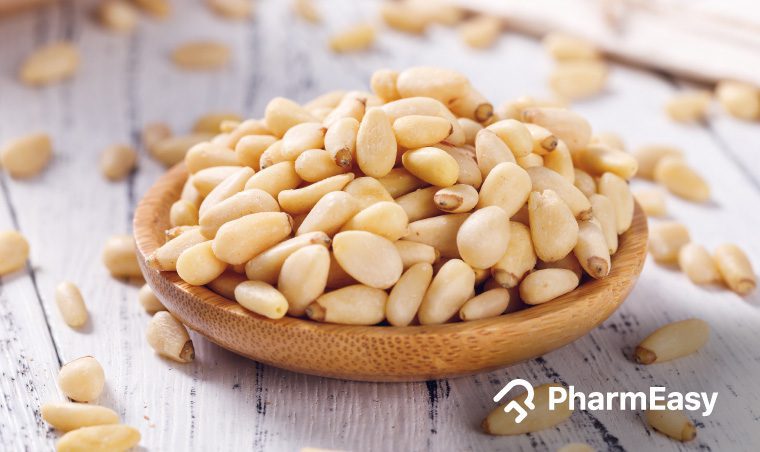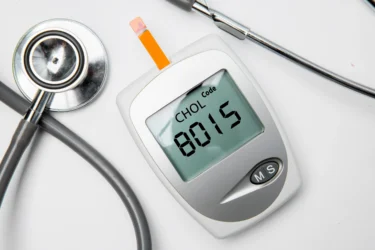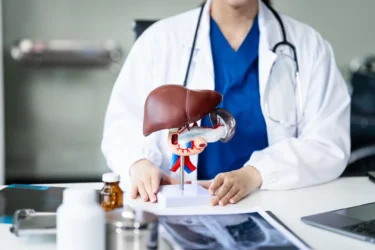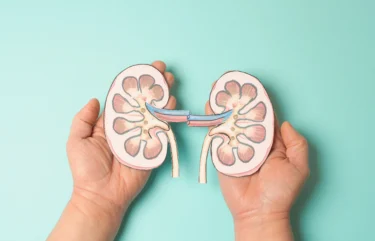Pine Nuts (Pinoli): Uses, Benefits, Side Effects By Dr. Rajeev Singh
By Dr Rajeev Singh +2 more

Get,

to manage your symptom
Get your,


4 Cr+ families
benefitted

OTP sent to 9988776655



You’ve successfully subscribed to receive
doctor-approved tips on
Whatsapp

Get ready to feel your best.

Hi There,
Download the PharmEasy App now!!


Register to Avail the Offer
Send OTPBy continuing, you agree with our Privacy Policy and Terms and Conditions

Hi There,
Sign up on PharmEasy now!!
Trusted by 4 crore+ families

OTP sent to 9988776655



You have unlocked 25% off on medicines




Code: NU25
By Dr Rajeev Singh +2 more
Table of Contents
Pine nuts are being consumed in the Mediterranean region for over 2000 years. Commercial pine nuts are largely obtained from Pinus pinea. However, seeds from other plants such as Pinus koraiensis and Pinus gerardiana are also eaten worldwide. The composition of pine nuts varies from species to species and depends on the climatic conditions and geographical location. They are a rich source of nutrients and might be beneficial for human health in various aspects. Detailed description is given in the following sections1.

Did you know?
Pine nuts contain an energy of 673 kcal. The nutrients present in 100g of pine nuts are as follows1:
Vitamins present in pine nuts are as follows:
Pine nuts might have the following properties:
Recently, I stumbled upon a study9 that shows that pine nuts might trigger the release of gut hormones involved in bringing satiety, such as cholecystokinin (CCK) and glucagon-like peptide-1 (GLP-1). This may result in a decrease in appetite and food intake, suggesting that pine nuts might act as a natural appetite suppressant.
Dr. Rajeev Singh, BAMS
The composition and the nutrients present in it might change depending on the geographical location and climatic condition. However, they do contain vitamins, minerals, and various other compounds which might aid human health. Some of the potential health benefits of pine nuts are as follows.

An animal study2 showed that pine nuts might have the potential to lower lipid levels in the blood. It was also stated that pine nuts might also affect the metabolism of lipoprotein. Pine nuts are rich in nutrients, and vitamins with less cholesterol. However, more studies on humans are required to prove these possible effects.

Peanuts are a rich source of minerals, proteins, and vitamins. Regular consumption or including peanut in the diet reduce the food intake. Few studies3 showed that pea nuts may maintain proper weight and may control the blood sugar levels in the body. However, further research is required to claim that peanuts are in weight management.

A study1 showed that eating pine nuts might help reduce the level of fat in the blood and may also decrease the incidence of atherosclerosis (deposition of fat material in the human body) and coronary heart diseases. Pine nuts also contain flavonoids and consumption of peanuts might help reduce the risk factors of heart diseases. It might also promote the relaxation of blood vessels and the free flow of blood. However, kindly ensure that you consult a doctor for heart conditions to receive proper treatment. Do not self-medicate.

A few studies4 have shown that the potential use of pine nuts for heart diseases might be due to its possible effects on the blood vessels. Pine nuts might help reduce systolic blood pressure. It might also help improve the endothelial function (lining of blood vessels), may reduce the plasma viscosity (allows better blood flow) and may reduce the plasma fibrinogen (a factor causing blood clots). All these factors may help in controlling blood pressure. However, consult a doctor in case of high blood pressure and do not self-medicate.

Researchers5 have noted that pine nuts extracts might have the potential to lower blood glucose levels. This activity might be due to the presence of proteins, vitamins, and antioxidant activity in pine nuts. However, these effects need to be further evaluated by conducting more studies. Furthermore, conditions such as diabetes need to be diagnosed and treated properly by a doctor. Kindly consult a doctor and do not self-medicate.

It was seen in certain animal studies6 that pine nut extracts might help improve liver function tests. This might be due to the antioxidant activity of pine nuts. There seemed to be an improvement in the structure of liver cells on the administration of pine nut extract too. However, these effects need to be evaluated and consulted with a doctor in case of liver infection and not self-medicate.

An animal study7 showed that protection of the glomeruli (Cleaning units of kidneys) and a reduction in inflammation might be due to the administration of pine nuts. This might be potentially due to the reduction of oxidative stress by the antioxidant properties of the pine nuts. Therefore, pine nuts might help protect the kidney and might exhibit a reno-protective property.
Though there are studies that show the potential uses of pine nuts in various conditions, these are insufficient and there is a need for further studies to establish the true extent of the benefits of pine nuts on human health.
From what I have seen, pinolenic acid (PNLA), derived from pine nuts, may show benefits as a dietary supplement for addressing chronic inflammatory and immune diseases. It exhibits potential benefits in managing these conditions and may serve as a valuable addition to a person’s nutritional regimen1.
Dr. Siddharth Gupta, B.A.M.S, M.D (Ayu)
Pine nuts can be used in the following ways:
You must consult a qualified doctor before taking pine nuts in large amounts. Do not discontinue or replace an ongoing treatment of modern medicine with an ayurvedic/herbal preparation without consulting a qualified doctor.
Also Read: Peanuts: Uses, Benefits, Side Effects By Dr. Rajeev Singh
The most common side effects of pine nuts are:
One should confirm if it is safe for them to eat pine nuts before eating them. Ensure that you are not allergic to pine nuts, as allergic reactions can be serious and might also lead to death. You should be extra cautious while giving it to children as they might be allergic to them.
It is hypothesised that some medicines like those given for controlling blood pressure (ACE inhibitors and vasodilators) might enhance the severity of anaphylactic reactions to pine nuts. Therefore, you should consult a doctor and confirm if it is safe for you to eat pine nuts before eating pine them, especially if you are taking any medication.
Also Read: Black Chana: Uses, Benefits, Side Effects By Dr. Rajeev Singh
The total energy of 673 kcal is present in 100g of pine nuts.
Pine nuts contain various nutrients such as proteins, carbohydrates, fats, sugars, vitamins (A, B, E & C), and minerals (calcium, magnesium, phosphorous, etc.).
There are no valid reports of any positive effect of pine nuts on skin. More research is required in this area.
Pine nuts might be helpful for the heart, liver, kidney, diabetes, blood pressure, etc. However, more research is required to prove these potential effects of pine nuts on human health.
Pine nuts might help in reducing the risk factors that cause heart diseases. Therefore, it might be helpful for the heart. However, kindly consult a doctor for heart-related issues. Do not self-medicate.
1. Takala R, Ramji DP, Choy E. The Beneficial Effects of Pine Nuts and Its Major Fatty Acid, Pinolenic Acid, on Inflammation and Metabolic Perturbations in Inflammatory Disorders. Int J Mol Sci. 2023 Jan 6;24(2):1171. doi: 10.3390/ijms24021171. PMID: 36674687; PMCID: PMC9861571. Available from: https://pmc.ncbi.nlm.nih.gov/articles/PMC9861571/
2. Nishi SK, Paz-Graniel I, Ni J, Valle-Hita C, Khoury N, Garcia-Gavilán JF, Babio N, Salas-Salvadó J. Effect of nut consumption on blood lipids: An updated systematic review and meta-analysis of randomized controlled trials. Nutr Metab Cardiovasc Dis. 2025 May;35(5):103771. doi:10.1016/j.numecd.2024.10.009 [published online 2024] [cited 2026 Jan 23]. Available from: https://www.sciencedirect.com/science/article/pii/S0939475324003909
3. Arya SS, Salve AR, Chauhan S. Peanuts as functional food: a review. J Food Sci Technol. 2016 Jan;53(1):31-41. doi: 10.1007/s13197-015-2007-9. Epub 2015 Sep 19. Erratum in: J Food Sci Technol. 2024 Nov;61(11):2222. doi: 10.1007/s13197-024-06021-0. PMID: 26787930; PMCID: PMC4711439. https://pmc.ncbi.nlm.nih.gov/articles/PMC4711439/
4. Kris-Etherton PM, Hu FB, Ros E, Sabaté J. The role of tree nuts and peanuts in the prevention of coronary heart disease: multiple potential mechanisms. J Nutr. 2008 Sep;138(9):1746S-1751S. doi:10.1093/jn/138.9.1746S [cited 2026 Jan 23]. Available from: https://www.sciencedirect.com/science/article/pii/S0022316622099436
5. Hosseini SA, Vali M, Haghighi-Zade MH, Siahpoosh A, Malihi R. The Effect of Chilgoza Pine Nut (Pinus gerardiana Wall.) on Blood Glucose and Oxidative Stress in Diabetic Rats. Diabetes Metab Syndr Obes. 2020 Jul 7;13:2399-2408. doi: 10.2147/DMSO.S250464. PMID: 32753924; PMCID: PMC7353998. Available from: https://pmc.ncbi.nlm.nih.gov/articles/PMC7353998/
6. Qu H, Liu S, Cheng C, Zhao H, Gao X, Wang Z, Yi J. Hepatoprotection of pine nut polysaccharide via NRF2/ARE/MKP1/JNK signaling pathways against carbon tetrachloride-induced liver injury in mice. Food Chem Toxicol. 2020;142:111490. doi:10.1016/j.fct.2020.111490 [cited 2026 Jan 23]. Available from: https://www.sciencedirect.com/science/article/abs/pii/S027869152030380X
7. Hosseinzadeh H, Khooei AR, Khashayarmanesh Z, Motamed‑Shariaty V. Antiurolithiatic activity of Pinus eldarica Medw. fruits aqueous extract in rats. Urol J. 2010 Fall;7(4):232‑237. PMID: 21170851 [cited 2026 Jan 23]. Available from: https://www.researchgate.net/publication/49695441_Antiurolithiatic_Activity_of_Pinus_Eldarica_Medw_Fruits_Aqueous_Extract_in_Rats
8. Ballin NZ. A trial investigating the symptoms related to pine nut syndrome. J Med Toxicol. 2012 Sep;8(3):278-80. doi: 10.1007/s13181-012-0216-4. PMID: 22351301; PMCID: PMC3550163. Available from: https://pmc.ncbi.nlm.nih.gov/articles/PMC3550163/
9. Rezq AA, El‑Khamisy EE. Hypolipideimic and hypocholestermic effect of pine nuts in rats fed high fat, cholesterol‑diet. World Appl Sci J. 2011;15(12):1667‑1677. [cited 2026 Jan 23]. Available from: https://www.researchgate.net/profile/Amr-Rezq-2/publication/266422897_Hypolipideimic_and_Hypocholestermic_Effect_of_Pine_Nuts_in_Rats_Fed_High_Fat_Cholesterol-Diet/links/582e367908ae102f072db750/Hypolipideimic-and-Hypocholestermic-Effect-of-Pine-Nuts-in-Rats-Fed-High-Fat-Cholesterol-Diet.pdf
Disclaimer: The information provided here is for educational/awareness purposes only and is not intended to be a substitute for medical treatment by a healthcare professional and should not be relied upon to diagnose or treat any medical condition. The reader should consult a registered medical practitioner to determine the appropriateness of the information and before consuming any medication. PharmEasy does not provide any guarantee or warranty (express or implied) regarding the accuracy, adequacy, completeness, legality, reliability or usefulness of the information; and disclaims any liability arising thereof.
Links and product recommendations in the information provided here are advertisements of third-party products available on the website. PharmEasy does not make any representation on the accuracy or suitability of such products/services. Advertisements do not influence the editorial decisions or content. The information in this blog is subject to change without notice. The authors and administrators reserve the right to modify, add, or remove content without notification. It is your responsibility to review this disclaimer regularly for any changes.
Comments

Leave your comment...
You may also like
Comments